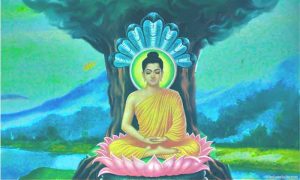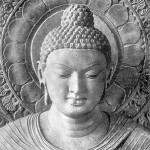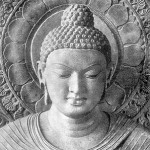Wisdom: What is Dukkha? “The Denial of Dukkha”
Dukkha is often translated as Suffering, but this definition tends to create complications for us. It can better be understood as Unsatifactoriness.
“The word dukkha is made up of the prefix du and the root kha. Du means “bad” or “difficult.” Kha means “empty.” “Empty,” here, refers to several things—some specific, others more general. One of the specific meanings refers to the empty axle hole of a wheel. If the axle fits badly into the center hole, we get a very bumpy ride. This is a good analogy for our ride through saṃsāra.”
~Joseph Goldstein , Mindfulness: A Practical Guide to Awakening
Three Kinds of Suffering
dukkha-dukkha the dukkha of physical and mental pain.
viparinama-dukkha the dukkha of constant change.
[Subtle dukkha related to Anicca.]
Often tied to suffering caused by pleasant experience
ruined by impermanence leaving cravings unsatisfied.
sankhara-dukkha the dukkha of life’s compositional nature.
[Subtle dukkha related to Anatta.]
Often tied to suffering caused by unpleasant
experience and taṇhā, or craving.
Struck by Two Arrows
“When touched with a feeling of pain, the uninstructed run-of-the-mill person sorrows, grieves, and laments, beats his breast, becomes distraught. So he feels two pains, physical & mental. Just as if they were to shoot a man with an arrow and, right afterward, were to shoot him with another one, so that he would feel the pains of two arrows; in the same way, when touched with a feeling of pain, the uninstructed run-of-the-mill person sorrows, grieves, & laments, beats his breast, becomes distraught. So he feels two pains, physical & mental.”
~ The Buddha, Sallatha Sutta
Three Types of Taṇhā
kama-taṇhā
craving for sense objects which provide pleasant feeling, or craving for sensory pleasures.
bhavana-taṇhā
craving to be something, to unite with an experience. Ego-related in opposition to Anatta.
vibhana-taṇhā
craving to not experience unpleasant things in the current or future life, such as unpleasant people or situations.
Saṃsāra & The Three Poisons
Raga greed, sensual attachment (opposite of Dāna).
Dvesha aversion, ill will (opposite of Mettā).
Moha delusion, confusion (opposite of Paññā).
The three poisons or the three unwholesome roots in Buddhism, refer to the three root kilesas of Moha (delusion, confusion), Raga (greed, sensual attachment), and Dvesha (aversion, ill will). These three poisons are considered to be three afflictions or character flaws innate in a being, the root of Taṇhā, and thus in part the cause of Dukkha (suffering, pain, unsatisfactoriness) and rebirthsIn the Buddhist teachings, the three poisons (of ignorance, attachment, and aversion) are the primary causes that keep sentient beings trapped in samsara.
What is Right View?
Acceptance of The Four Noble Truths, discerning the difference of mind and matter, an understanding of the cause and effect nature of reality, and clearly seeing into the characteristics of existence gives us insight into the cessation of suffering.
What are Feeling Tones?
Vedana: (sensation, or feeling) Sensory experience of an object.
It is either pleasant, unpleasant or neutral.
How can an exploration of Vedana lead to a cessation of The Three Poisons?
GROUP DISCUSSION AND EXERCISE
“So, as soon as I feel a little “off kilter” or dissatisfied, I stop and say: “Ah, this is dukkha.” Then, I trace my experience backwards until I find the place where I’m not getting what I want, or I’m getting what I don’t want: the craving or longing that is tanha. Lastly, I consciously try to let go of this craving – to just accept the circumstances of my life as they are.”
~Toni Bernhard
Allowing yourself to be a little vulnerable, and accepting that all of us suffer, meet with one, or (no more than) two people in a group. Share something in your life (perhaps a thought that comes up in meditation practice) that brings up difficult feelings of anger, sorrow, or fear. Accepting that this is a natural part of what it means to be human, and bringing an awareness to those feelings, explore how The Three Poisons contribute to these feelings. What role does attachment and aversion contribute to these negative feelings? How does an understanding of The Three Marks of Existence soften the blow of this suffering? Without attempting to resolve the problems or feelings right at this moment, consider what it would take to just be present and accept those feelings as they are right now.







 We were delighted to have Beverly Sanford back this past Monday, March 13th.
We were delighted to have Beverly Sanford back this past Monday, March 13th.

